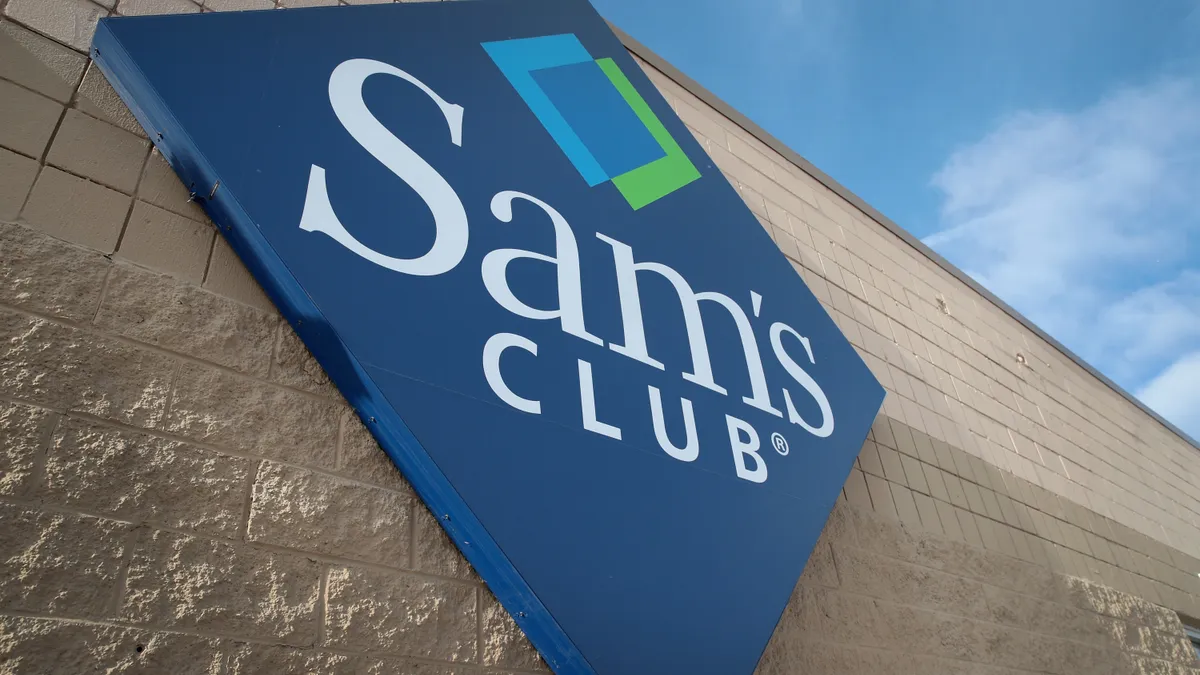The "Me Too" movement started well before hashtags existed, tracing its roots back to 2006 when civil rights activist Tarana Burke coined the phrase as a way to help survivors of sexual violence.
The movement has since grown significantly, tumbling some of the biggest careers across industries, from entertainment (Bill Cosby and Harvey Weinstein) to restaurants (Mario Batali, John Besh, Mike Isabella and Ken Friedman), and causing leaders at the very top to not only pay attention, but also to prioritize improved policies.
During Bloomberg's CEO Forum last month, for example, Richard Edelman, president and CEO of the largest PR firm in the world — which has a deep footprint in the restaurant industry — said the #MeToo movement is one issue that requires CEO activism.
"Women have to feel as if they have more than just an equal shot. To feel they have safety in the workplace. It's not just a Hollywood thing," he said during a Bloomberg Live conference.
In fact, sexual harassment is more common in the restaurant space than in any other industry, according to the Harvard Business Review. As many as 90% of women and 70% of men in the industry have reported some form of sexual harassment.
There are a number of recent high-profile examples supporting these statistics. McDonald's has been navigating a number of sexual harassment lawsuits throughout the past few years, including U.S. Equal Employment Opportunity Commission harassment charges filed against the company in January. In September, thousands of McDonald's employees in 10 U.S. cities walked off the job in protest of the company's culture of harassment. And last year, two IHOP franchisees paid nearly $1 million to resolve lawsuit alleging systemic sexual harassment.
Sexual harassment has long been pervasive in the industry, but the #MeToo movement has thrust this culture into the spotlight. The repercussions have created a sense of urgency for restaurants to improve their practices, whether that means adding training or revamping policies.
"I am seeing more and more restaurants interested in implementing harassment training and wanting to ensure they have the proper policies and procedures in place," Carrie Luxem, owner of Restaurant HR Group and CarrieLuxem.com, told Restaurant Dive. "The numerous allegations emerging from the #MeToo movement serve as a wake-up call for restaurant operators and business owners everywhere."
Because of this, harassment training is no longer being placed on the back burner, she said.
Beyond HR training, the movement has also had legal implications for businesses. According to Gary Clark, a partner with Quarles & Brady LLP in Chicago, employers are now taking their investigation responsibilities more seriously as well.
"In the past, some organizations had a tendency to find complaints 'unsubstantiated' simply because there was not conclusive evidence one way or the other. Now, companies realize that investigators must make credibility determinations in order to take their investigatory obligation seriously," Clark told Restaurant Dive.
"I am seeing more and more restaurants interested in implementing harassment training and wanting to ensure they have the proper policies and procedures in place."

Carrie Luxem
Owner, Restaurant HR Group
He said he is seeing more second-level reviews of harassment investigations, whether through high-level HR, legal or outside counsel.
However, despite the #MeToo movement and its consequences making their way into the spotlight, Carly Baratt, an associate with New York-based law firm Epstein Becker Green, said there is no clear evidence that the restaurant industry has changed significantly because of the movement — yet.
"That said, employers have become more cognizant and some more proactive in trying to create an anti-harassment workplace," Baratt told Restaurant Dive. "The focus on #MeToo seems to have prompted — at least in part — legislative efforts by states to curb sexual harassment by introducing mandatory training for restaurant employees. If these efforts are successful, the industry could see real change."
Such legislative efforts, however, are relatively new and sporadic. A bill was approved in October by Washington, D.C., lawmakers mandating restaurateurs provide anti-sexual-harassment training to all employees, for example, which followed similar laws passed in New York City and California.
What is the solution?
The $500 billion restaurant industry is filled with disparate staffing and ownership models, making it challenging to develop a blanket solution for sexual harassment issues. But progress is being made nonetheless.
In an email to Restaurant Dive, National Restaurant Association (NRA) President and CEO Dawn Sweeney said, "Our industry — like so many others — is confronting this challenge as our collective awareness has increased about this problem in society. That is why we have instituted improved training programs for our members to help prevent and respond to this behavior in the workplace. We condemn sexual harassment. Period. Tipped, hourly and salary workers all deserve the same level of respect and support. It does not matter if the harasser is a customer, a colleague or a manager, it will not be tolerated in our industry."
Last year, NRA launched ServSafe Workplace, a suite of training programs that "focuses on creating and sustaining a safe and appropriate work environment for all employees," according to the program's website. The product is focused specifically on mitigation and management of issues and assists in strengthening establishments’ stance against workplace harassment.
Beyond NRA's efforts, Luxem also suggests that restaurant companies implement five key strategies to prevent harassment:
- Annual training for all employees, which includes a clear definition of harassment, federal and state rights and reporting procedures;
- An anti-harassment policy that requires employee signatures and includes consequences and how to report claims;
- Periodic reminders of this policy, whether via posters in the break room or during regular meetings;
- Enforcement of behavior standards — leadership needs to demonstrate acceptable behavior to hold others accountable for the same principles; and
- Investigation of every single claim. Failure to do so, Luxem says, indicates a lack of commitment to a harassment-free workplace.
Baratt adds that interactive training, which provides illustrative examples of harassment, should be provided to all employees, particularly new hires.
"Ideally, such training would describe how victims and bystanders should report suspected harassment to management," she said. "Any training should recognize that harassment is just as likely to originate with a coworker as it is a customer."
Further, it is critical for restaurant policies to prohibit all types of harassment, regardless of whether or not it is legally actionable.
"Companies find themselves in trouble when their policy only prohibits actionable harassment, which creates a serious disincentive to finding a complaint substantiated," Clark said. "Creating a culture where employees implicitly understand 'that does not fly here' is essential to protecting a restaurant's brand and its employees."
"Any training should recognize that harassment is just as likely to originate with a coworker as it is a customer."

Carly Baratt
Associate, Epstein Becker Green
Well before #MeToo led disgraced celebrity chef Mario Batali to give up his restaurants, some brands were already working to proactively avoid harassment issues. For years, Mooyah Burgers, Fries & Shakes, for example, has required every employee to sign a social media harassment policy alongside a sexual harassment policy. Bigger restaurant companies like Yum Brands have codes of conduct in place that address various types of harassment. But these systems don't mean these types of issue are non-existent or easy to navigate. McDonald's U.K. learned that the hard way last fall, when employees walked out in protest over the company's failure to enforce company rules against harassment and ignoring a number of reported incidents.
The franchisor/franchisee challenge
Given the nature of this industry, however, enforcement of these policies and proper checks and balances can be very challenging.
For example, food franchises account for 36% of the establishments and 48% of the annual financial output of the U.S. franchise industry, according to the Food Franchise Report 2018. So, do corporate or franchise owners pay for that training? And how is that training implemented across entire systems?
"Each brand has the responsibility to ensure their employees are working in a safe environment. This may look different for each and every restaurant," Luxem said. "Ultimately, it's up to the ownership of the company to make sure proper training is being done."
Baratt argues that training should be a cost of doing business, therefore putting franchisees on the investment hook, while Clark believes this very question underscores the difficulties the industry could have in fully rectifying the issue.
"One of the biggest challenges for the restaurant industry is ensuring consistency from restaurant to restaurant," Clark said. "Creating a workplace culture that has no tolerance for inappropriate conduct starts at the top and gets reinforced daily throughout the organization."
And it's not just management at the unit-level that plays a critical role here — HR does, too.
"It's essential that HR is an active participant at the local level in reinforcing the company’s values and making employees comfortable reporting up," Clark said.
Aside from cost and consistency, Luxem believes the biggest challenge is that harassment frequently occurs in the shadows or under the guise of sarcasm or playfulness. This further illustrates why proper training is so crucial.
"In order to have a great culture, which is at the heart of every business, you have to make sure your employees feel comfortable coming into work every day," she said. "Putting a policy in the employee handbook is just not enough."
Baratt agrees. "While training can be time intensive and costly for restaurant companies, especially smaller establishments, restaurants need to consider the legal risks of not providing training," she said. "Not only can training prevent lawsuits, but proof that a restaurant conducted anti-harassment training can be a defense to liability or damages in the event of litigation."
"Not only can training prevent lawsuits, but proof that a restaurant conducted anti-harassment training can be a defense to liability or damages in the event of litigation.”

Carly Baratt
Associate, Epstein Becker Green
Under the Faragher/Ellerth ruling, she notes, an employer can avoid liability for harassment involving a hostile work environment if the employer "exercised reasonable care to prevent and correct promptly" any harassing behavior. New Jersey and Illinois have introduced legislation that, if enacted, would result in the assessment of substantial fines for restaurants that fail to train their employees on sexual harassment prevention.
In other words, while the #MeToo movement continues to pick up steam, so too does the effort to combat harassment. The restaurant industry may be mired in unfavorable statistics on this issue, but the risks are too high for restaurants to ignore anymore.
"Being proactive is not just the right thing to do, it's essential to the company's business,” Clark said. "Companies that fail to take their obligations seriously can expect a serious backlash and financial repercussions."






















